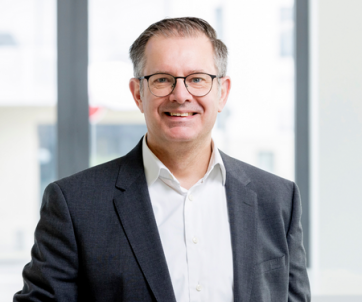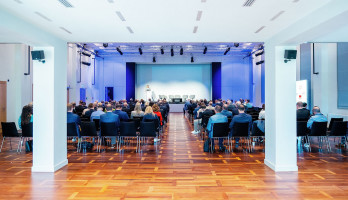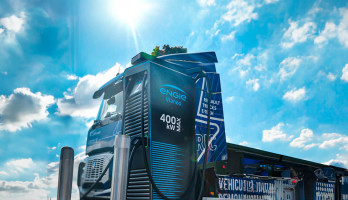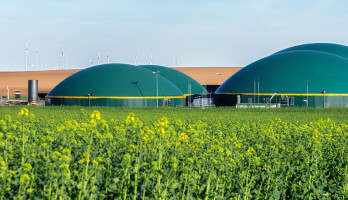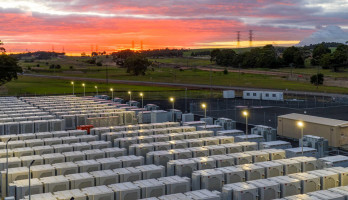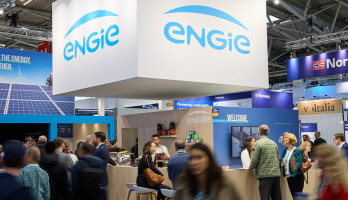
Impulse #27: Tackling decarbonization
What is needed now to accelerate the decarbonization of cities, industry, and buildings? In the new "Impulse," Niklas Wiegand, Managing Director of Local Energy Infrastructures Germany and Managing Director of ENGIE Deutschland GmbH, outlines the status quo of the energy transition in Germany – and explains how ENGIE Deutschland offers sustainable solutions as a reliable partner.
"At ENGIE Deutschland, we are shaping the energy transition for our customers – with sustainable solutions for cities, industry, and buildings."
Do you enjoy low-carb foods? Then I would like to tell you about a special treat in this edition of "Impulse." But don't worry, I'm not going to bombard you with unusual dietary tips. Instead, I'm going to take you on a journey inside ENGIE Deutschland. As a team, we have positioned ourselves to accompany you, our customers, on the path to decarbonization in an even more targeted manner with new "low carb" approaches, thereby driving forward the energy transition. In the following, I would like to give you an insight into the specific solutions we offer and the best practices we are currently successfully implementing together with our customers in cities, industry, and buildings.
The energy transition as the task of the century
Perhaps you feel the same way I do: the energy transition seems to have fallen somewhat behind in recent months. Nevertheless, it is and remains the most important task facing society as a whole in our time. The energy transition is the central building block for systematically and purposefully combating climate change and thus ensuring a safe, healthy, and economically successful future for us all. That sounds extremely ambitious and, yes, perhaps even unsettling, but it hits the nail on the head. The energy transition is a task for the century. In my view, the transformation is quite comparable to the industrial revolution; in both cases, the change is enormous and has fundamental implications for politics, the economy, technology, and society. And—this is also a fact—it requires necessary investment in new technologies, such as the expansion of renewable energies and the expansion and conversion of the power grid.
The future is an attitude
Dear readers, at ENGIE Deutschland, we don't see the energy transition as just a buzzword. For us, it's an attitude. Our goal throughout the ENGIE Group is to accelerate the transition to climate neutrality for our customers. In the Local Energy Infrastructures business unit, my team and I focus on economical and sustainable solutions for cities, industry, and buildings that ensure the reliable operation of vital energy infrastructures and promote the responsible use of resources. From personal conversations with decision-makers in these areas, I know that numerous companies and organizations want to drive forward the energy transition and therefore developed their own climate protection goals years ago. But these grand plans are now often gathering dust in drawers. Why? Because in many places, a certain disillusionment has spread due to the enormous complexity of decarbonization projects—and cities, industry, and buildings are falling behind, with the result that the energy transition in Germany as a whole is lagging behind.
From wanting to doing
So what is the solution? Simply put: just do it. Move from wanting to doing. Get started. Regardless of where a city, building, or industrial plant currently stands: if climate protection goals have already been defined, the next step is to acquire the necessary implementation expertise. If large budgets for new technology are required, a financing partner is now the necessary booster. And if decarbonization and the energy and heating transition are being tackled anew, the first step is to find a reliable partner to develop an individual decarbonization strategy, including a real-zero master plan for implementation. In all these scenarios, we are at your side as a strong partner: with our technical expertise and our competence in design & build to plant construction, operation, and energy supply, we are the only specialist in Germany that supports our customers along the entire value chain at the highest level. We have mastered every single element that makes up the energy transition—from analysis and planning to construction, operation, and successful value retention to financing, for example, in the context of energy contracting.
Low carb for cities, industry, and buildings
In day-to-day business at ENGIE Deutschland, this means that our experts work tirelessly for our customers to translate decarbonization plans "off the shelf" into concrete solutions and implement them in a targeted manner. Every project and every step contributes to the success of the energy transition. Ultimately, even a task as monumental as the energy transition requires precision work in its implementation. Let me outline two current projects that illustrate exactly this: First, this summer in the city of Tettnang, we joined forces with Regionalwerk Bodensee to start construction work on a local heating network powered by 100 percent renewable energy with an annual output of up to 14.1 megawatts. When 14 municipal and state-owned buildings are connected to the network in the first phase of expansion, CO2 emissions will be reduced by more than 4,000 tons compared to fossil fuels – a truly great project that serves as a beacon for many cities and municipalities in Germany. Secondly, we are currently implementing a large decarbonization project for a customer in the pharmaceutical industry that has been clearly focused on reducing carbon emissions from the outset and will save 1,300 tons of CO2 annually from October 2026 compared to fossil fuels through an innovative concept combining cooling, heating, and near-surface geothermal energy. For me, this is an important best practice for industrial companies, offering potential for the pharmaceutical and chemical industries as well as for the automotive market, the food and beverage sector, and many other industries. After all, they all have one thing in common: a climate-neutral future can be achieved with the right, tailor-made solutions and strong implementation expertise—millimeter by millimeter, step by step.
At this point, I am curious: How are you doing with "low carb"? And what can my team and I do to increase efficiency and reduce CO2 in your company or organization? Let's discuss this in person—by email, on LinkedIn, or from October 6 to 8, 2025, at EXPO Real in Munich, in Hall B2 at Booth 440. I look forward to talking to you!
Yours sincerely,
Niklas Wiegand
Managing Director Local Energy Infrastructures Germany and
Managing Director ENGIE Deutschland GmbH
Our Expert
